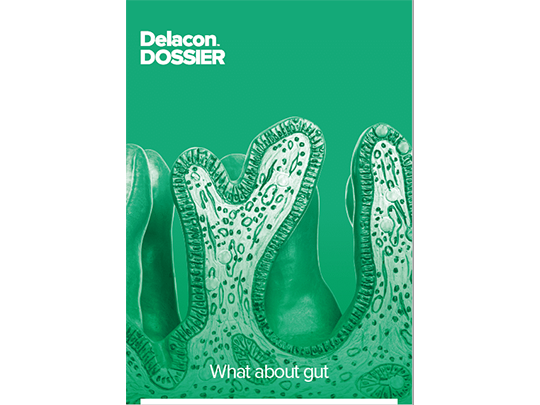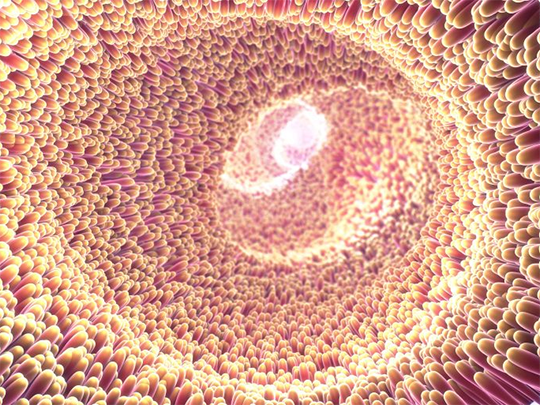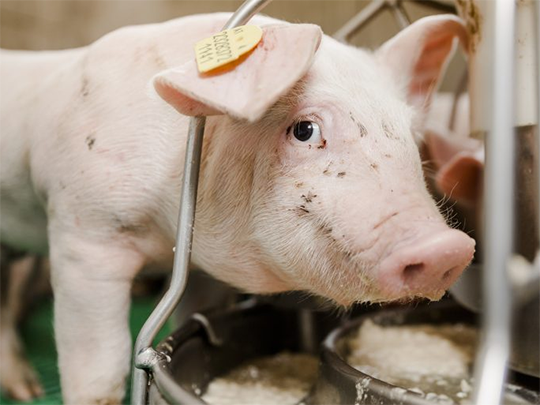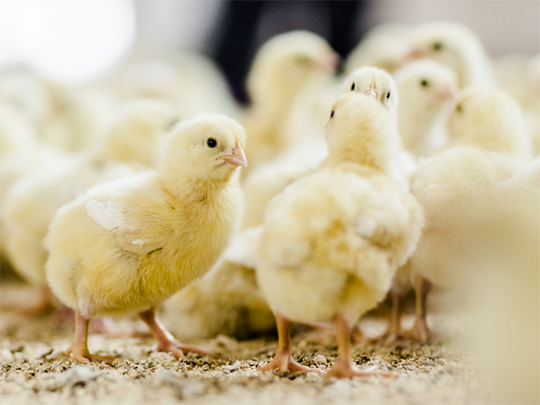What about… The role of the intestinal microbiota for intestinal development and health in young pigs and poultry?
Discover with Dr. Metzler-Zebeli the role of intestinal microbiota for intestinal development and health in young animals and learn more in our dossier.

Dr. Metzler-Zebeli, from the University of Veterinary Medicine in Vienna, Austria, gives a very interesting insight into the role of the intestinal microbiota in monogastric animals.
Here comes a short preview of her exciting contribution of our latest dossier “What about gut”:
A properly functioning gastrointestinal tract is of utmost importance to supply nutrients in order to meet the genetic growth potential of farm animals. Disturbances of the intestinal homeostasis and related health problems have become major issues in monogastric livestock animals, especially since the ban of antimicrobial growth promoters in animal feed by European Union in 2006, which were previously kept under control by the use of in-feed antibiotics.

The microbiota of the gastrointestinal tract is largely influenced by animal’s diet, stage of digestion in the different intestinal compartments, the environment, genetics and age of the host animal. Dysbiosis refers to a shift or disruption in the normal intestinal microbiota composition which is accompanied by host mucosal inflammation.

In pigs, a destabilization of the intestinal homeostasis takes place after weaning due to the drastic dietary shift from a milk-based diet to a plant-based diet, overwhelming the immature digestive functions, developing immune system and demanding for other bacterial enzymatic capacities which are associated with dramatic alterations in the microbial composition and can lead to dysbiosis.

Modern chicken breeds have an extremely high feed intake, which puts an enormous stress on the digestive system that can cause dysbiosis and diarrhea, even in the absence of specific pathogens, due to bacterial overgrowth.
Did you know?
In a healthy intestine, a constant homeostasis is maintained by the perfect regulation of the microbial load and the immune response generated against it.
Any changes in the intestinal microbiota shifts have consequences for the microbe-host networking along, altering the host innate immune response and mucosal barrier function…
…Phytogenics have the potential to control the bacterial load in the intestine due to antimicrobial activities, simultaneously stimulating feed intake and secretion of gastric and digestive juices.

Elisabeth Rohrer
After her study in agriculture sciences at the university of natural resources and life sciences in Vienna, Elisabeth joined the Delacon team in December 2013 as Technical Communications Manager - a position, she always exerted with pleasure. Since 2021, her task areas have been extended and thus, she is also supporting colleagues in writing offside the technical focus as Content Manager. Elisabeth describes herself as a great animal and nature lover and prefers to spend her free time high up in the mountains with her little family, away from the hustle and bustle.











331 / 5000
Resultados de tradução
Excellent!! I am in love with phytobiotics. I think they are the future of humanity.
My master's thesis is directed to the use of phytobiotics in the nutrition of poultry from Myrtaceas such as eucalyptus, guava, araza and camponesia.
I would like to be in contact with you.
best regards